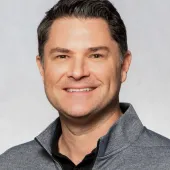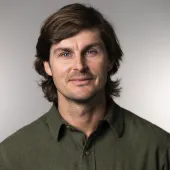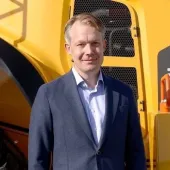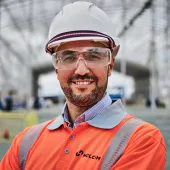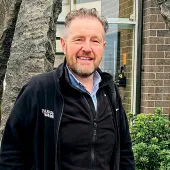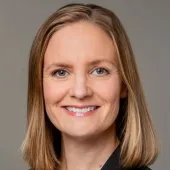The Institute of Demolition Engineers Inside
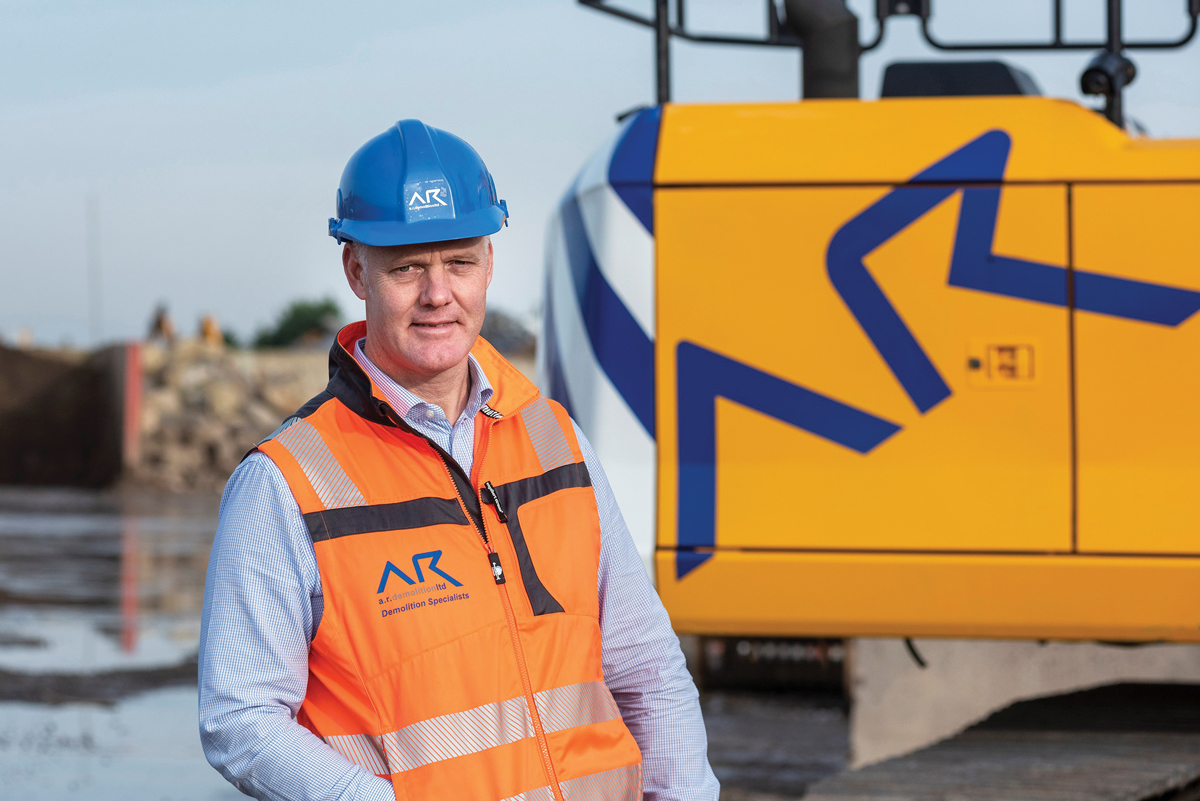
First published in the October 2020 issue of Quarry Management
The Institute of Demolition Engineers (IDE) plays a pivotal role in the UK demolition industry. In a recent Q&A session with QM, Richard Dolman, vice-president of IDE, spoke about his part in further developing the Institute and its long-term goal of promoting the sector as an attractive career opportunity to the next generation of demolition professionals
Founded in 1976, the Institute of Demolition Engineers (IDE) is the industry body that champions the continuing professional development of demolition professionals. The IDE works rigorously to promote demolition engineering as a skilled profession and its main stated objectives include: the promotion of the use of more efficient demolition techniques; the encouragement of safer methods of working; and the provision of a qualifying body for the industry.
Quarry Management took the opportunity to ask Richard Dolman, IDE vice-president, about his professional background, the challenges and opportunities facing the demolition sector and the value of delivering a diverse and inclusive workforce at a time when there is an alarming national skills shortage in the wider construction industry.
QM: How would you summarize your career?
Richard Dolman: I’ve always been interested in machinery. After I left school, I did an apprenticeship in restoring E-Type Jaguars – it was great. I enjoyed it and progressed well, but I had a job appraisal and was disappointed by the future that my employer was laying out for me.
So, I left and when I was just 20, I bought myself a brand new JCB digger, studied a two-week course and started hiring myself out for groundworks. My father guaranteed me a loan (he never gave me any money) and I soon acquired a number of clients who were happy with the work I was doing and became repeat customers.
After a few years, one of them asked me if I could knock down a fuel station for them. I thought I’d give it a go. I was probably breaking every rule in the book that I run my company by now, but that’s where the embryo of AR Demolition was born.
That was in the late 1990s. AR Demolition itself was set up in 2007 and, since then, it has been an exciting journey to where we are today. I’ve learned a lot – both about demolition engineering and about running a business. And despite some ups and downs along the way; I’m proud of what we’ve achieved.
I think it’s important to emphasize that I never had a vision for what I wanted to achieve and success was never defined by earnings or accumulating wealth. I just wanted to do good work and to be asked back again to do more jobs. Now, and in the future, I want AR to be the company people think of when they need someone to meet a challenge and to do jobs in a safe, sustainable and efficient manner.
QM: Why did you choose demolition/ waste-management as a career?
RD: I fell into the work as a natural progression from how I’d started my working life. But the opportunity to set up the company came when I saw a gap in the market. My experiences and feedback from my customers suggested there was room in the industry for better education, dare I say it, for professionalism, for integrity and for more customer satisfaction.
I thought there was something I could do there, to help improve perceptions of the industry so that more people were attracted to work in it, to drive up standards and to push for innovation.
Discovering the complexities of waste-management was the other side of the job, something I didn’t appreciate at all when I was just doing groundworks. But demolition engineers are the bin men for the developers and structure owners of this world – we clear up after projects and, as such, part of our role is to segregate material and sort out where it’s going to end up.
I’d like to think that, in the future, demolition experts will start to have more and more involvement in the design of new structures, with a view to what’s going to happen to them at the end of their life. Sustainable construction and performance is fine, but it is whole-of-life which really matters.
QM: What training, development and support did you have to get to where you are today?
RD: I’m massively self-taught – I’ve done what I thought was the right thing and always tried to find best way of going about my business. In a way, not working my way through the ranks at an existing company has been a massive bonus, as it’s given me a free rein to learn new and different ways of doing things.
Now, as the director of what I like to think is an innovative and pioneering contractor, I’m in a position to pass on what I’ve learned to others. As a company owner and through working alongside the IDE, I’ve helped set up the first demolition degrees at the University of Wolverhampton, which is something I’m keen to promote more widely.
QM: When did you become a member of IDE and why?
RD: I joined the IDE about 12 years ago, shortly after AR Demolition was set up. It was a natural step – I saw what they were doing and thought it made a lot of sense to become a member. I enjoy seeing like-minded people getting together and, quite often, sharing best practice. The Institute has a valuable role to play as a learning platform for the industry and it’s an ideal focal point for people who think along similar lines.
I was honoured to be elected vice-president of the Institute two years ago and I’m delighted that I’ll be taking up the presidency later this year. I’ve been involved in the Council of Management at the IDE for a long time and I’m interested in the direction that the Institute takes next. I’d like to think that I can influence some of that path going forward and I’ve got a few ideas of things that I’d like to do during my tenure.
QM: As vice-president of IDE, could you give us your perspective on the role of the IDE in the development of the demolition industry?
RD: The Institute is about individuals rather than being a trade association, so it doesn’t get involved in lobbying the Government for regulatory change. What we can do is promote the understanding of legislation, discuss and learn from it, and hope that people take something away and educate others in turn.
I want to encourage industry to share lessons learned a lot more, because I think that on the whole – and this isn’t limited to the demolition industry – it would be good to water down the taboo that goes with learning from mistakes when they happen, and so forth. Things don’t always go to plan, but it’s better to be upfront and learn from these events, rather than brushing them under the carpet.
Demolition engineers are also extremely well placed to offer advice to the wider construction industry on how to develop sustainable building practices. The industry needs to consider the eco-performance of the end of a building’s life, as well as its active life.
The other big thing is to encourage development of education in demolition. We have made a start with the degrees at the University of Wolverhampton and I believe our next steps are to publicize them more, to take the course online so that it can attract candidates from further afield.
Of course, you’re never going to get demolition to be an online industry because we’ll always have to go to site and knock things down. But I do believe that the learning and best practice can be shared online. Also, online tools can be built to assist with projects; for example, with site waste management, with guidance and with reporting.
I’d then like to see our clients looking for people with degrees to be involved in their projects. Then it snowballs, so clients want it, the industry then wants it and the general hunger for education builds.
QM: What are your goals for the organization during your tenure?
RD: Given what I’ve said about the Institute being a place for innovators to share ideas and best practice, I’d like to raise the IDE’s profile so that its members are recognized among clients and stakeholders in the industry and so, that membership of the IDE is a badge of professionalism, quality and respectability among demolition contractors. I want us to promote more sustainable methods of operation, so that we can help minimize the impact of our work on clients’ day-to-day operations, as well as on the planet.
And I’d like to increase diversity in the industry – women have a lot of skills to offer – as well as encouraging youngsters to explore the opportunities for working in demolition. There are great prospects at all levels in our industry, whether it’s working on site, managing projects or becoming an engineer – and those need communicating better. We definitely have a skills shortage problem, so we need to sort out the link between that and the issue of unemployment.
QM: What do you see as the immediate priorities for the industry?
RD: Maybe it’s the nature of being an entrepreneur but I see opportunities where I suspect others see problems. So, while the skills shortage is a challenge, it also provides a chance for us to talk to youngsters about the great blend of the digital and the practical that demolition can offer as a career.
It’s about perception. We need to communicate the fact that we are encouraging young people to think about our industry as a career option whilst offering them what they are looking for.
QM: Why should demolition professionals/companies be involved in trade associations and professional bodies, such as the IDE?
RD: It’s clear that attitudes are changing across society at the moment and as an Institute we have a role to play in that change. Our industry often doesn’t get the recognition it deserves, but hopefully the IDE can showcase those innovative companies that are keen to share knowledge and learn from each other so, individuals who join us have a genuine opportunity to change our industry for the better in terms of professionalism, innovation and, ultimately, profitability too.
Our strength as an organization comes through our membership – the more of us who join, the more powerful we become as an organization which is a hub of learning. We can help our members to keep up with legislation, learn best practice and get new ideas. But I also want to see those who are benefitting, from the supply of information that the IDE can offer, giving something back to it as well.
QM: We are currently facing the most difficult and challenging trading conditions ever, due to the impact of the COVID-19 pandemic on the economy. What are the challenges and opportunities facing the demolition industry as the post-pandemic recovery begins?
RD: Fortunately, the demolition industry has not faced too many challenges on site during this pandemic, largely because we don’t have operatives in close contact with each other. However, I of course share the concerns of business owners and industry leaders about the challenges we face as nation, over the coming impact on the economy and how we can survive it.
I’m encouraged by the noises the Government is making about investing in construction – that’s going to generate momentum in the economy and we’re a cog in the machine which will keep moving as a result.
- Subscribe to Quarry Management, the monthly journal for the mineral products industry, to read articles before they appear on Agg-Net.com


